Israeli-Linked Vessel Attacked By Suicide Drone In Indian Ocean
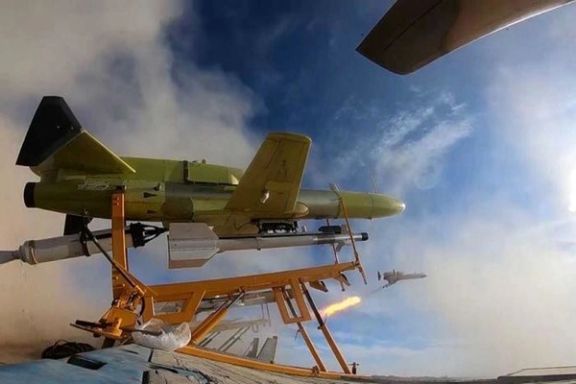
A vessel affiliated with Israel was hit by a drone in the Indian Ocean, 200 nautical miles Southwest of India, in a sign of attacks spreading against maritime traffic.

A vessel affiliated with Israel was hit by a drone in the Indian Ocean, 200 nautical miles Southwest of India, in a sign of attacks spreading against maritime traffic.
United Kingdom Maritime Trade Operation reported the incident on Saturday, as attacks by Iran-backed Houthi forces have escalated against commercial shipping in the Red Sea. The location is hundreds of miles from the Iranian and Yemeni territories, and it is not known from where the drone was launched.
Later, the vessel was identified as the Liberian-flagged tanker as MV Chem Pluto carrying crude oil from Saudi Arabia.
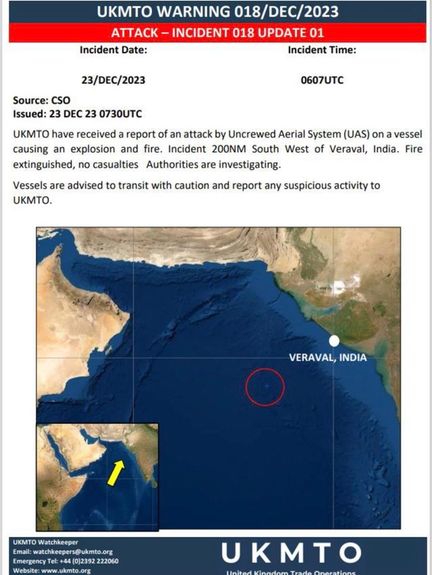
Some Iranian one-way kamikaze drones, such as Shahed 136 used by Russia against Ukraine, have a range of at least 1,000 kilometers.
Meanwhile, an Iranian Revolutionary Guards commander said the Mediterranean Sea could be closed if the United States and its allies continued to commit "crimes" in Gaza, Iranian media reported on Saturday, without explaining how that would happen. However, use of suicide drones launched from Syria, where Iran has a strong military presence, could endanger shipping in the Mediterranean Sea.
"They shall soon await the closure of the Mediterranean Sea, (the Strait of) Gibraltar and other waterways," Tasnim quoted Brigadier General Mohammad Reza Naqdi, coordinating commander of the Guards, as saying.
Iranian-backed Houthis began launching suicide drones and missiles at commercial vessels in the Red Sea in mid-November following Iranian Supreme Leader Ali Khamenei’s call to block Israeli commerce.
The US last week announced a naval coalition involving 20 countries aimed at helping safeguard vessels from attacks in the Red Sea. However, it is not clear if the naval coalition is a defensive arrangement or will conduct retaliatory attacks to deter the Houthis.
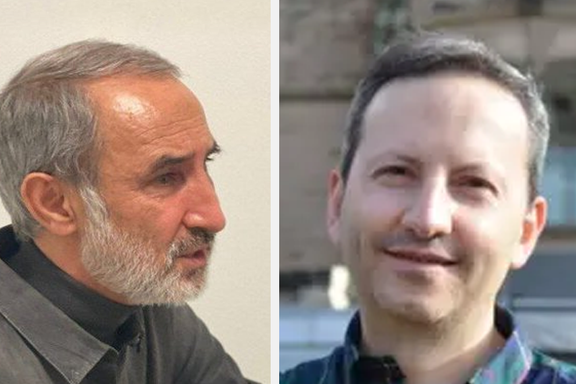
A Swedish- Iranian academic faces danger of execution in Iran after a court in Sweden affirmed a life sentence for a former Iranian jailer, Amnesty International says.
Ahmadreza Djalali was detained in 2016 while on a visit to Iran and accused of espionage in a non-transparent trial. Later he was sentenced to death.
Amnesty International issued a statement on Friday saying that Djalali “is at grave risk of imminent retaliatory execution.” Earlier this week, an appeals court in Sweden reaffirmed the life sentence of Hamid Nouri, a former prison official in Iran, who was convicted for his role in the killing of up to 5,000 prisoners in 1988.
“Amid a sharp spike in executions in Iran since November, mounting evidence indicates that Iranian authorities are threatening to carry out Ahmadreza Djalali’s execution in retaliation for their unmet demands to pervert the course of justice in Sweden,” Amnesty stated.
Djalali is widely considered as another hostage held by Iranian authorities to put pressure on Sweden and other Western countries.
Amnesty referred to the hostage taking in its statement, saying, “The international community, including Sweden, must immediately call on the Iranian authorities to halt any plans to execute Ahmadreza Djalali, end their shocking assault on the right to life, release him immediately, and put a moratorium on all executions. Iranian officials must be investigated for the crime of hostage-taking”.
This year, the United States allowed $6 of Iran’s funds to be unblocked in South Korea in exchange for the release of five American dual nationals held in Iran for years.
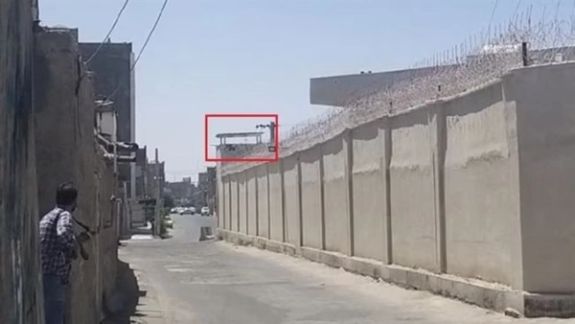
Iranian Baluch activists have reported a significant shooting incident near the Quds base of the Islamic Revolutionary Guard Corps (IRGC) in Sistan-Baluchistan province.
However, Governor Saeed Tajlili claimed that the shooting around the base was linked to a wedding celebration. According to initial reports, gunfire was reported last night in the vicinity of the base in Saravan. Tajlili added that military forces have detained the groom in connection with the incident.
As of now, no additional information is available concerning the circumstances surrounding the reported shooting.
The development comes on the heels of a recent attack on December 15 by the Sunni Jaish al-Adl militant group, targeting a police station in Rask, a small city in Sistan-Baluchistan Province. Iranian state media and Baluch groups reported a death toll of at least 12 police officers and several attackers killed during prolonged gunfire at the main police headquarters. Seven police officers sustained injuries, some critical.
Sistan-Baluchistan, an economically challenged province with a significant Sunni population of the Baluch ethnic group, grapples with ongoing tensions with Iran's Shiite clerical rulers. Regular clashes between security forces, Sunni militants, and drug smugglers characterize the region.
Discrepancies persist in casualty figures, with official reports stating 12 officers killed and at least seven injured, while Jaish al-Adl insists on a higher toll of 50.
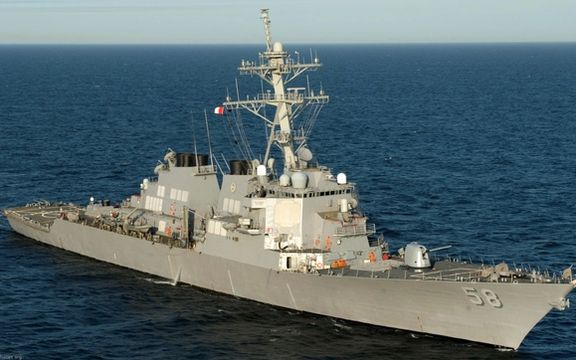
Iran was "deeply involved" in planning drone and missile attacks against commercial vessels in the Red Sea by providing intelligence, the White House said on Friday.
This is the clearest statement yet implicating Iran by the Biden administration in the Red Sea attacks that has threaded softly with Iran, according to critics. Iran has so far not responded to the US statement.
Yemen’s Houthis, who receive military assistance and all types of weapons from Iran began launching attacks on commercial shipping in the Red Sea from mid-November following Iranian Supreme Leader Ali Khamenei’s call to block Israeli commerce.
Houthis, who say their attacks are in support of Hamas under siege by Israel in Gaza, have forced shippers to change course and take longer routes around the southern tip of Africa.
"We know that Iran was deeply involved in planning the operations against commercial vessels in the Red Sea. This is consistent with Iran's long-term materiel support and encouragement of the Houthis' destabilizing actions in the region," White House national security spokeswoman Adrienne Watson said in a statement.
"This is an international challenge that demands collective action," Watson said.
Iran denies involvement in attacks by the Houthis in the Red Sea, but state media praise the Houthi actions, as well as Hamas and attacks by other Iranian proxies against US bases in the region. Apart from the Red Sea, militant groups in Iraq and Syria have launched more than 100 drone and rocket attacks on US interests.
Iranians because they're really calling the shots here."
The US last week announced a naval coalition involving 20 countries aimed at helping safeguard vessels from attacks in the Red Sea. Some of the countries involved have said operations to protect commercial traffic will be as part of existing naval agreements.
However, it is not clear if the naval coalition is a defensive arrangement or will conduct retaliatory attacks to deter the Houthis.
"I am absolutely stunned that we're still sitting there in a defensive mode," said former Vice Chief of Staff of the US Army Gen. Jack Keane in an interview with Fox News on December 15. "To shut these people down, you have to take away their capability to do it... You go after the rockets… You go after their entire command and control system… you go after their entire command and control system… you go after the Iranians because they're really calling the shots here."
On December 16, White House National Security Advisor Jake Sullivan stated, "While the Houthis are pulling the trigger, they're being handed the gun by Iran. And Iran has a responsibility to take steps themselves to cease these attacks." However, no attempt has been made to degrade the Houthis ability to disrupt shipping that is impacting oil prices and disrupting international commerce.
“We have capabilities to sink your fleet, your submarines, your warships,” a top Houthi official said, according to the IRGC-affiliated Tasnim news agency. “The Red Sea will be your graveyard.”
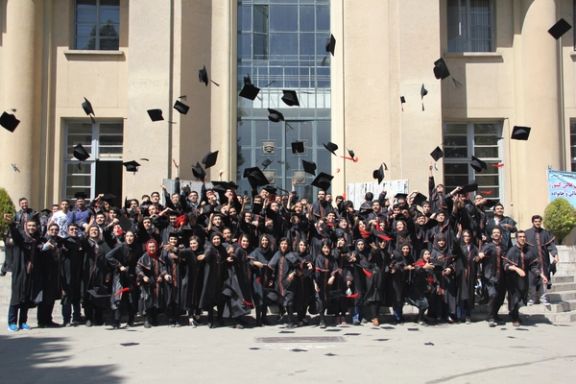
Tehran’s academic policies have received widespread criticism after Iran was announced to be among the countries with the highest rate of retracted scientific papers.
In a report published earlier in the month by Nature, considered by many as the world’s leading journal of science, Iran ranked seventh in the list of the countries with the highest retraction rates with an average of 16.7 retractions per 10,000 papers.
Only Saudi Arabia, Pakistan, Russia, China, Egypt and Malaysia had a higher retraction rate in comparison with Iran, the report said.
Nature’s report analyzes the academic productions of the countries with 100,000 papers published over the past two decades.
Published papers get retracted when it is discovered that they violate ethical and professional guidelines due to scientific misconduct or plagiarism.
In June, Iran’s parliament announced that as many as half of the postgraduate theses produced between 2019 and 2022 have been fraudulently written.
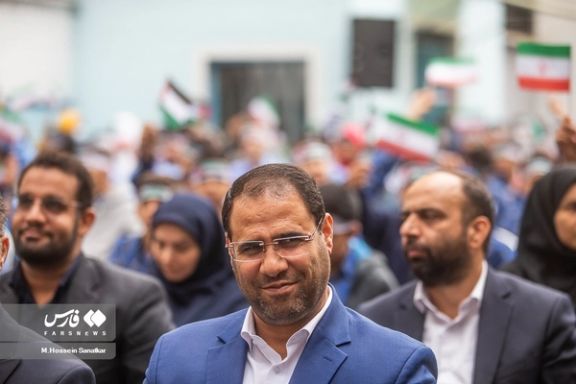
Nature’s report drew the attention of university professors and researchers in Iran who have long been critical of the establishment’s over-emphasis on publishing papers in national and international journals.
Iran International interviewed several university professors and researchers in Iran about the worsening condition of conducting research projects in the country. They spoke on condition of anonymity fearing the Islamic Republic’s crackdown on critics.
An assistant professor at the University of Mazandaran told Iran International that the field of research in Iran has turned into a very lucrative market where “products” can easily be bought and sold.
Unofficial advertisements about the sale of research papers, theses, dissertations and semester projects can be found in university campuses, she said, adding that over recent years, offices have been founded in Tehran and many other cities that offer to write research papers for students and teachers at an exorbitant price.
She blamed the political ambitions of the Islamic Republic for the creation of such a notorious “research market,” noting that Tehran officials have time and again stressed that Iran should rank first in the region in terms of academic productions.
As a result, the research “obligations” for university teachers, postgraduate students and researchers have been devised by the government’s officials in a conscious attempt to “force” academicians to write as many papers as possible regardless of their quality or their industrial and practical utility, she went on to say.
One university professor told Khabar Online in Tehran that Iranian research has failed to solve pressing problems facing the country. “What is the purpose of these featureless articles, which are occasionally accused of being counterfeit and also jeopardize the country's international scientific reputation," the professor said.
A PhD holder in French literature from the University of Tabriz, one of Iran’s leading academic institutions, told Iran International that the pressure on teachers and students in Iranian universities to write a large bulk of research papers in fact reflects the authoritarian structure of the political establishment where quantity precedes quality.
If a PhD student does not reach the research quotas they will not be allowed to defend their dissertation, the researcher said, adding that the pressure starts with the Ministry of Science, university professors having no other way but to follow the ministry’s guidelines in order to keep their teaching positions.
According to a PhD student of TEFL at the University of Beheshti, many postgraduate students in Iran have no “research agenda” for themselves as is the case with the world’s top universities.
We are expected to work like “paper-manufacturing machines” so that our supervisors can get promoted, she said. De-motivated and under pressure, there are many students who resort to plagiarism or assign somebody else to complete their research projects, she went on to say.
Research published last year in the Journal of Academic Ethics, concluded that "Iran lags behind other countries with regards to what is known about contract cheating and how to address it", citing major reform needed in policy and academia.
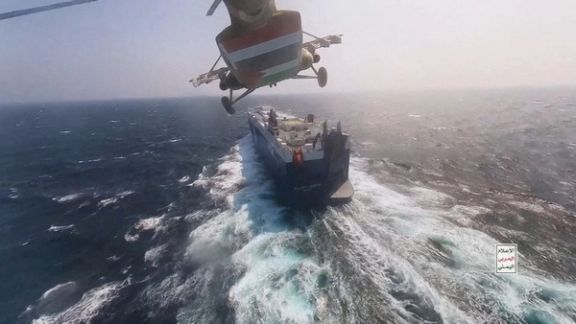
Iran was "deeply involved" in Yemen's Houthis’ operations against commercial vessels in the Red Sea and its intelligence was critical to facilitate the attacks, the White House said on Friday.
"We know that Iran was deeply involved in planning the operations against commercial vessels in the Red Sea. This is consistent with Iran's long-term materiel support and encouragement of the Houthis' destabilizing actions in the region," White House national security spokesperson Adrienne Watson said in a statement. "This is an international challenge that demands collective action.”
The Wall Street Journal reported Friday that Iran’s Revolutionary Guards are providing real-time intelligence and weaponry, including drones and missiles. Citing Western and regional security officials, the report read, "Tracking information gathered by a Red Sea surveillance vessel controlled by Iran’s paramilitary forces is given to the Houthis, who have used it to attack commercial vessels passing through the Bab el-Mandeb strait in recent days."
“The Houthis don’t have the radar technology to target the ships. They need Iranian assistance. Without it, the missiles would just drop in the water," said a Western security official.
Tensions are escalating in the region as Iran-backed Houthis increase attacks on shipping, targeting commercial vessels with drones and missiles ostensibly to exert pressure on Israel amid the ongoing conflict in Gaza. The attacks are forcing shippers to change course and take longer routes around the southern tip of Africa.
Hamas, another Iran-backed militia group, launched a multipronged war against Israel on October 7, killing about 1,400 mostly civilians with 240 hostages taken into Gaza. Israel has been pounding the coastal sliver to uproot Hamas, which says 20,000 people have been killed in the retaliatory offensive. The conflict is spiraling out across the region as other Iranian proxies have intensified attacks against Israeli and US targets.
The US last week announced a naval coalition involving 20 countries aimed at helping safeguard vessels from attacks in the Red Sea. Some of the countries involved have said operations to protect commercial traffic will be as part of existing naval agreements. Hours after Washington launched the multinational force, Houthis threatened to ‘sink’ US warships.